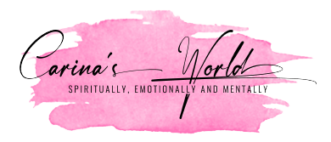Last week was an emotionally turbulent one for me. When I become overwhelmed like that, I sit down at my computer and pour out all my feelings. The funny thing is, I thought I was creating a great post. Still, I sent it to a close friend to read and point out anything that should be corrected. What I didn’t expect is for her to tell me that I was all over the place. Mind you, just because I poured out my feelings onto paper didn’t mean I had instantly become calm.
My friend called me and began questioning me on different sections – a lot of “why” questions – which, I admit, just added to my turmoil. But as I answered those questions, aggravated though I was, she helped me to get down to the real subject of my paper. Needless to say, I decided against publishing that paper.
The next morning, I reread my paper and concurred with every point she made. It was all over the place. I was ranting, getting down all my anger and frustration and hurt, which was good for me. It just wasn’t something to post.
During my personal Bible study over the next couple of days, the subject of stillness arose. I decided to research the importance of stillness or meditation and found that some form of meditation figured in many different religions or philosophies. Now, I don’t know about some of you, but I’ve always had difficulty sitting quietly without doing something, even if it was just reading. Otherwise, all these thoughts ran through my mind without ceasing.
Yet, I remember my Dad advising me to stop and take time to pray. Well, I did, every morning and every night. That wasn’t what he meant. As I’ve reached this point in my life, becoming aware of how out of balance I am and the damage I’ve caused myself, I am coming to understand what he was trying to tell me, which brings me back to my chaotic paper.
While pouring out my feelings in that way was good for me, it was only my first step. I needed to go a step further and be still. I needed to take time to sit quietly and just breathe. It’s akin to a kettle of water on the stove. The stove is turned on and as the water’s temperature rises, the water begins to boil. As it does, the pressure inside the kettle increases until the steam is forced out.
I am the kettle, the water is my emotions, and the fire under the kettle is the situation. The fire or situation (argument, for example) heated my emotions until they were roiling inside me so that I had to release them or explode; hence, the paper. Yet the water is still hot, right? My emotions were still lit. The only way to calm myself was to sit or lay down in stillness and focus on something other than that situation.
After I hung up with my friend, I put on soothing instrumental music, said my nighttime prayer while adding a request for direction regarding the situation, gave thanks, and let the music relax me into a deep sleep.
The next day, I awoke in a much calmer state of mind. As I did my Tai Chi Chih routine, which, to me, is a moving form of meditation, I found that I became more centered. Later, when I did sit down to consider the situation, it was with clarity and calmness. There is a verse in the Bible that says it best for me:
“…In quietness and confidence shall be your strength.” It’s the last part of Isaiah 30:15.
Over the course of a few days, I learned the truth of that verse so that when I read it, the verse resonated in my spirit, my mind, and my emotions. When we are out of control and one part of who we are is roiling like turbulent waters, we are weakened and blinded by our emotions. I learned that we are strongest when we are able to see clearly, to think, focus, and pray or meditate for the answer. It isn’t easy and may take practice, but it will surely help us to grow and evolve into more centered, not as easily upset, or angered, individuals.
Have you tried stillness or meditation? If so, how well has it helped you?

